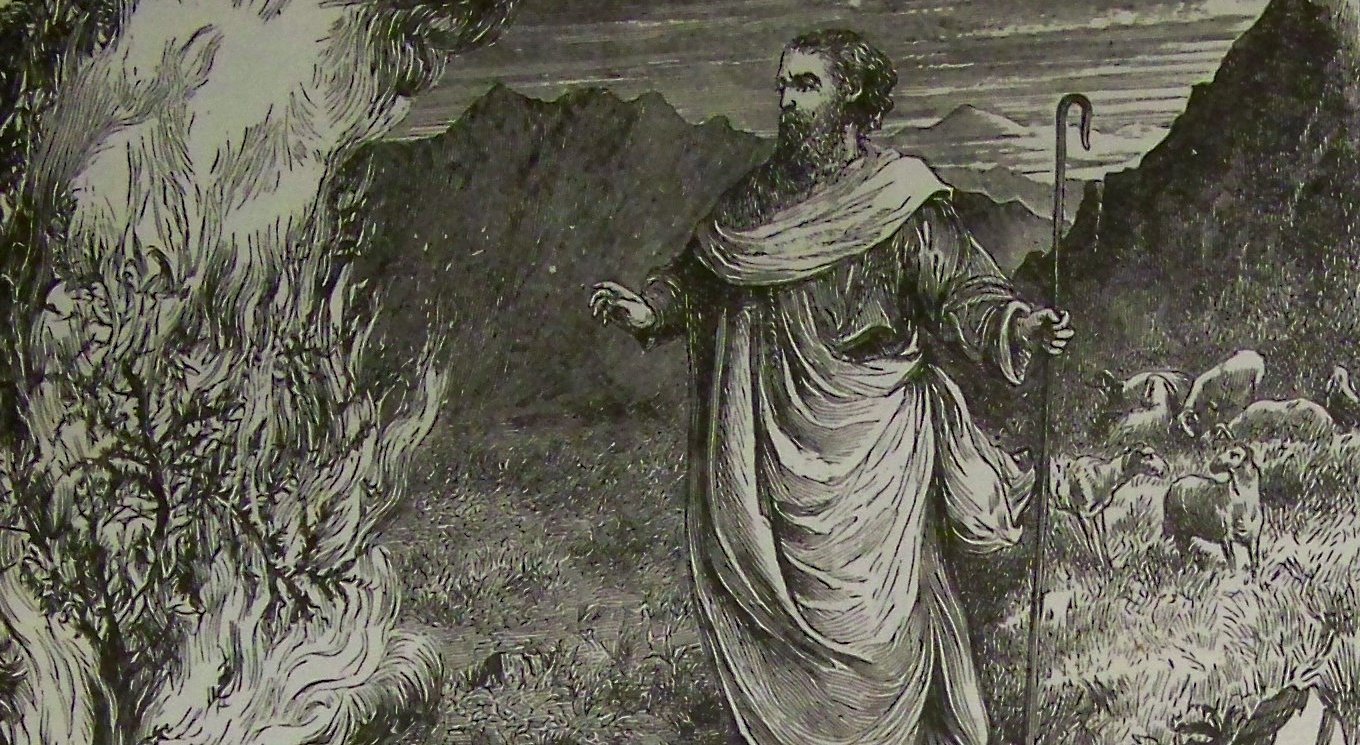Commentary on Parashat Shemot, Exodus 1:1-6:1
Many people who effect dramatic change in the world speak of having had a “calling,” a powerful pull toward a particular life’s work or path of action. In the Torah, God appears frequently as the emissary of Divine calling, inspiring people to rise to their destined paths of duty. Abraham and Sarah’s three hungry guests, Jacob’s wrestler of the night, and Elijah’s “sound of small silence” are just a few examples. Today, in a world where we can’t rely on theophany to inspire us to make a difference, how will we recognize a calling?
Even Before the Calling
In Parashat Shemot, the Divine appears to Moses as a burning bush that does not burn up. This “great sight” (Exodus 3:3), as Moses describes it, is not random. Midrash actually draws a linguistic connection between the “flame (lavah) of fire” and a heart (lev) of fire.
Something burns within Moses that will not go away–his visceral opposition to the slavery in Egypt. This is the message that emanates from the eternal flames, the awareness that arises in his heart of fire.
This is not the first time that Moses feels his deep-seated intolerance for the bondage of “his brothers” (Exodus 2:11), but thus far he has been afraid to face it. When he kills the Egyptian in defense of a Hebrew slave, he not only buries the body, he buries the personal implications of his actions by fleeing to the farthest reaches of the desert and beginning a new life in a remote community. Nonetheless, Moses cannot extinguish the fire within him, nor can he escape its heat.

Help us keep Jewish knowledge accessible to millions of people around the world.
Your donation to My Jewish Learning fuels endless journeys of Jewish discovery. With your help, My Jewish Learning can continue to provide nonstop opportunities for learning, connection and growth.
His burning bush revelation ultimately empowers him to return to Egypt and take a stand. “The sages say: Seven whole days previously did God urge Moses to go on his mission, but he refused to go until the incident of the bush” (Sh’mot Rabbah 3:14). Mere nudging was insufficient. Moses needed to look upon his own heart, to see that he would always remain disturbed by the injustices in Egypt.
Pick a Cause
When we realize that a certain injustice in the world will always deeply disturb us, we gain the strength to address it–even without total confidence that we will succeed.
Moses certainly lacked confidence. In the presence of the burning bush, he expresses his heaviest anxieties. He feels inadequate and meek. He fears the unknown and the what-ifs of the future. Even God’s words and wonders cannot dissolve Moses’ doubts.
But he takes action nonetheless. He honors his burning bush within, his heart of fire. He realizes that his drive to liberate Israel will never abate, and although he lacks confidence that he will succeed, he is confident that he must try.
This is our paradigmatic tale of a “calling,” yet it challenges the conventional definition of this term as something that one was born to accomplish. Moses’ epiphany is not that he is destined to complete a mission–God does not promise success. Indeed, Moses’ fears and insecurities persist throughout his revelation.
Rather, Moses’ profound realization is that his passion was present all along–he should honor his heated heart and begin. Perhaps callings reveal more about drives than destinies.
Just as Moses was called to fight for Jewish liberation from slavery, my friend CJ was a young teen when he learned about the sex slave trade. He felt a burning need to protect the dignity of the victims in this vicious business and to bring the propagators to justice. He recognized the fire of his own reaction. He felt driven to oppose these abuses against women.
Today CJ passionately and tirelessly addresses this very issue in Washington. He does not draw strength from a belief that this is the most important fight in the world, but from a sense that it is his most important fight. This self-knowledge enables him to persevere in his work, to continually choose to respond.
Each of us must ask ourselves: What is my burning bush? Which injustice in the world makes me cringe, cry, scream? These are the causes for which we are most equipped to act, as overwhelming as they may seem.
The inevitable waves of nervousness and self-doubt cannot deter us from action. We cannot wait until we feel completely ready, for that time will never come. Rather, we must draw strength from the everlasting flames in our own hearts–the burning that will never stop.
Provided by American Jewish World Service, pursuing global justice through grassroots change.



